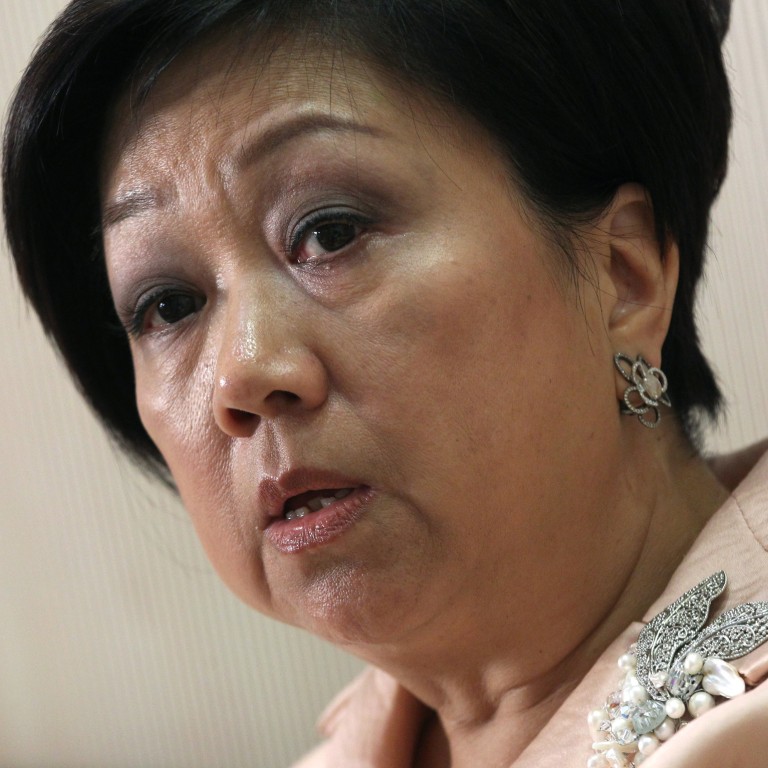
New | HSBC board member Laura Cha sparks anger after comparing Hongkongers to freed slaves
Thousands have signed an online petition denouncing reported comments by an HSBC board member in which she likened protesters’ demands for democracy to the emancipation of slaves.
Laura Cha Shih May-lung, who is also a member of the Executive Council, chairwoman of the Financial Services Development Council and a member of the National People’s Congress, was quoted as making the comments at an event in Paris.
“American slaves were liberated in 1861 but did not get voting rights until 107 years later, so why can’t Hong Kong wait for a while?” a local newspaper on Thursday quoted Cha as saying, referring to demands for free elections in the city.
Cha said democracy could not be reached in just one step and warned that investors’ confidence in Hong Kong was at a critical point, the newspaper added.
In a statement on Friday, Cha responded to criticisms made in the petition.
“Mrs Cha’s comment on the Civil Rights Act and the Voting Rights Act was by way of example that every country’s path to democracy was evolved in its own historical context. She did not mean any disrespect and regrets that her comment has caused concerns,” the statement read.
READ MORE: Click here for all the latest Occupy Central stories
HSBC’s Asia-Pacific chief Peter Wong Tung-shun declined to comment on the remarks, while the Financial Services Development Council did not immediately respond to a request for comment.
The comments triggered outrage on social media and more than 5,000 people had signed the petition by Friday afternoon.
“We, the Hong Kong public, will not stand these remarks likening our rights to slavery, nor will we stand the kind of voter disenfranchisement her and her associates attempt to perpetrate on the Hong Kong public,” said the petition to HSBC, that sought an apology from Cha.
The petition is addressed to the HSBC board of directors and is signed “The People of Hong Kong”.
China has ruled Hong Kong since 1997 through a “one country, two systems” formula which allows wide-ranging autonomy and freedoms not enjoyed on the mainland and specifies universal suffrage as an eventual goal.
But Beijing said in August it would screen candidates who want to run for the city’s election for a chief executive in 2017, which democracy activists said rendered the notion of universal suffrage meaningless.
For more than a month, key roads leading into three of the city’s most economically and politically important districts have been barricaded with wood and steel by thousands of protesters.
The protests drew well over 100,000 at their peak.
The Hongkong and Shanghai Banking Corporation, which was established in 1865 to finance growing trade between Europe, India and China, has for decades been the most prominent retail and commercial bank in Hong Kong, using the city as a bedrock for its global expansion. HSBC has the largest branch network in mainland China of a foreign bank.
The controversy is the latest to drag HSBC into Hong Kong politics.
Earlier this year, Next Media said HSBC and Standard Chartered had pulled millions of dollars worth of advertisements from after they were pressured by Beijing.
Apple Daily is owned by media magnate Jimmy Lai Chee-ying, an outspoken critic of Beijing who has supported pro-democracy activists through his publications and with donations.
HSBC and Standard Chartered have said the decision to pull the advertising was for commercial reasons.
Cha’s comments came just days after Chief Executive Leung Chun-ying triggered a wave of criticism when he said that free elections were unacceptable partly because they risked giving the poor and working class a dominant voice.

